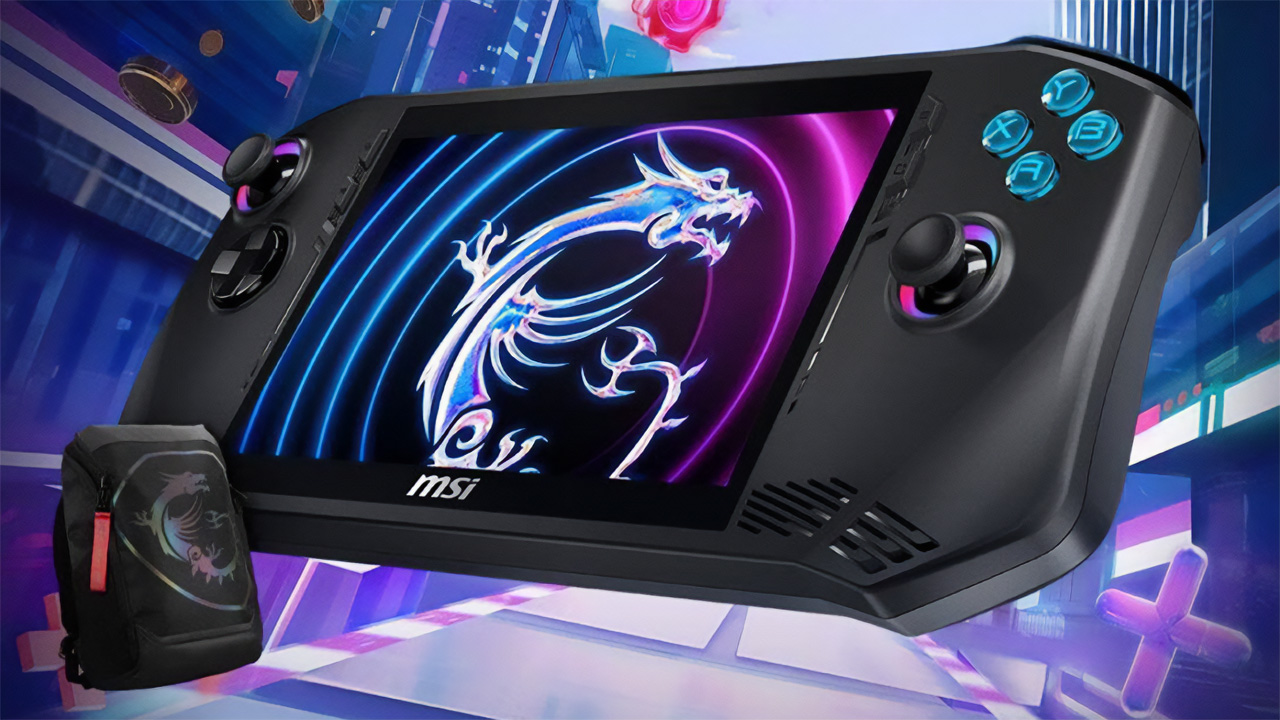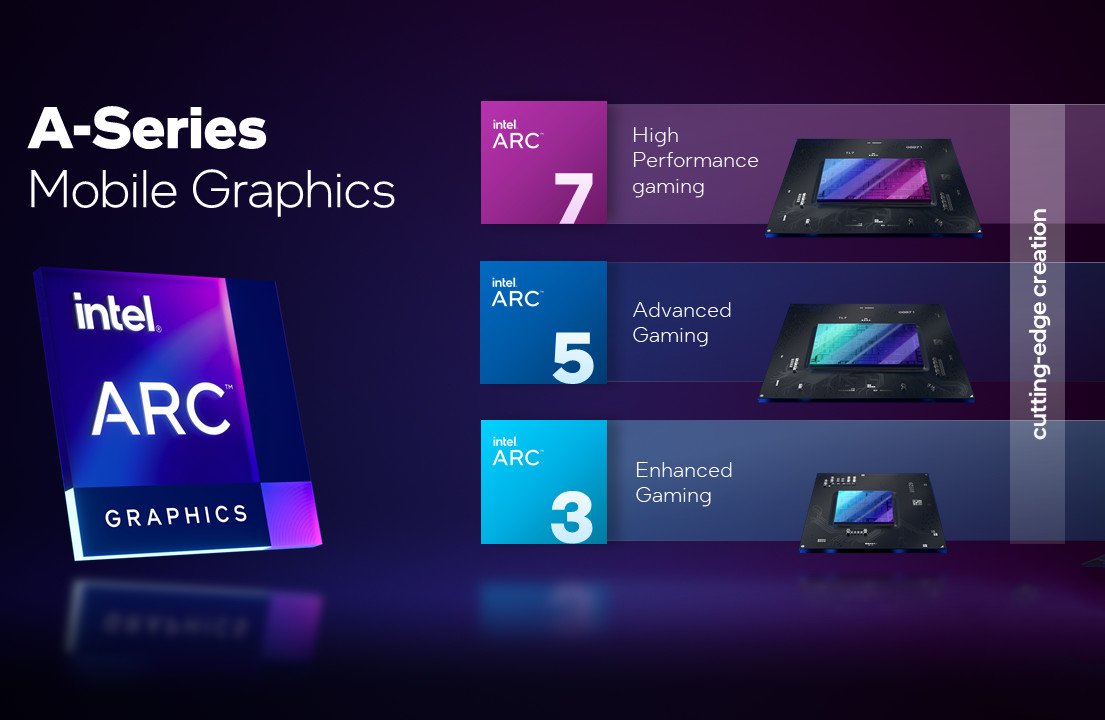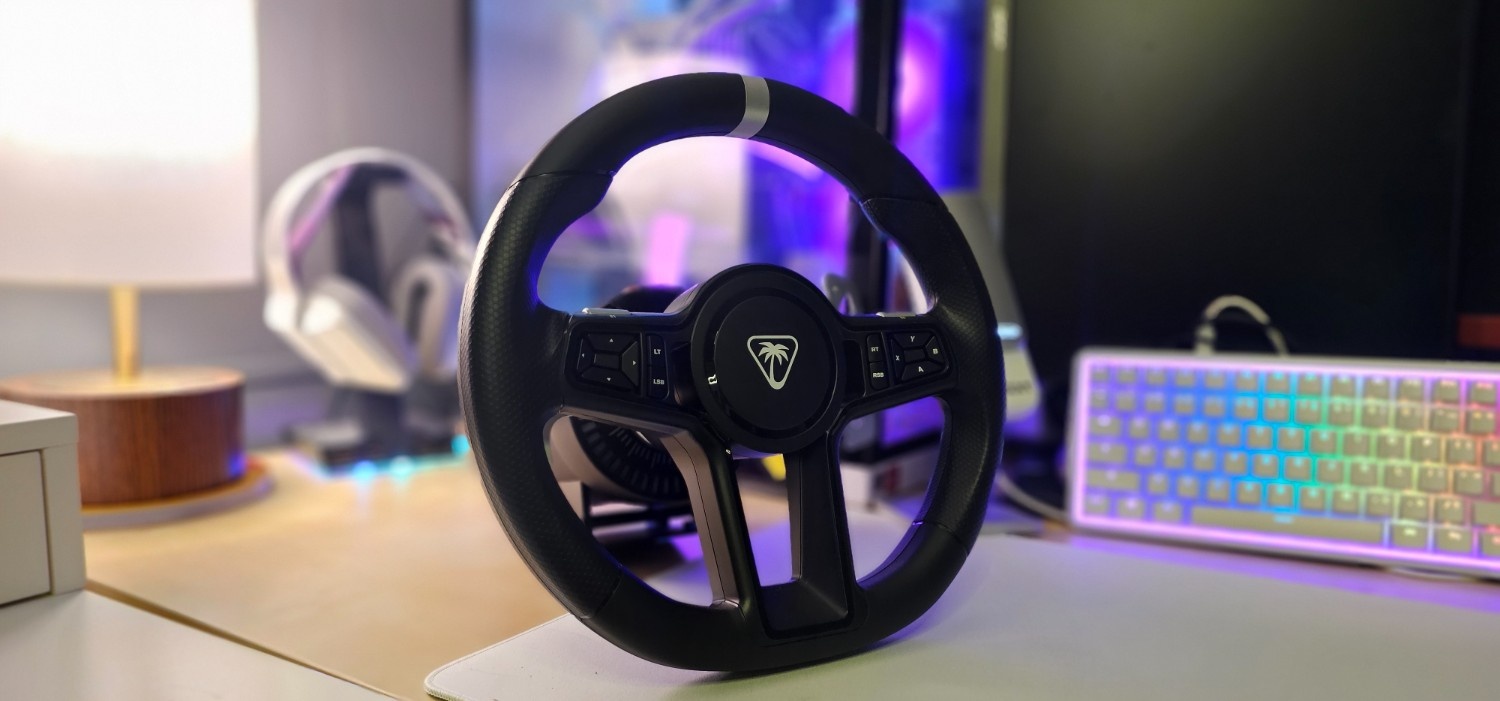Portable PC gaming handhelds are secretly my most anticipated tech innovation for 2024, and MSI makes the competition fierce
The leaked MSI Claw features Intel hardware, ready to tackle the giants of Valve's Steam Deck and ASUS' ROG Ally.

All the latest news, reviews, and guides for Windows and Xbox diehards.
You are now subscribed
Your newsletter sign-up was successful
What you need to know
- Details of the MSI Claw, a gaming handheld powered by Intel's Core Ultra 7 155H processor, have leaked from the company's Chinese branch.
- MSI's leap into handhelds faces a crucial test against leaders like ASUS ROG Ally and Lenovo Legion Go, aiming to match or surpass their performance and impact Valve's Steam Deck dominance.
- The Claw is expected to be officially unveiled at CES 2024 in Las Vegas, with specific variants and hardware still to be confirmed.
We only just closed out the year by awarding ChatGPT our award for 'Best Tech Innovation' of 2023, and I wholeheartedly agree with the team. Artificial intelligence marks the most remarkable shift for consumers in recent years and stands to make the future of laptops genuinely interesting again. However, regarding the gaming scene, it wasn't the Xbox Series X with its ultra-HD, 120Hz gaming that won my heart; it was the rise of handheld devices like Valve's Steam Deck and the subsequent competitors that steadily entered the market.
This year's Consumer Electronics Show (CES) starts next week, with plenty of manufacturers eager to show off their latest technology, often laden with the most extravagant features designed to thrill and impress. Various brands are undoubtedly planning to show off gaming laptops, but one, in particular, is pivoting ever-so-slightly away from its wheelhouse for 2024 to enter a relatively young market with a PC gaming handheld of its own: MSI. Yes, the company that made your motherboard is making a game console.
MSI Claw leaks online, powered by Intel
We already knew that MSI was gearing up to announce a portable console at CES 2024 thanks to a less-than-subtle "get a grip and stay tuned" teaser message. It wasn't possible to make out any concrete details from the obscured image besides an emphasis on multi-colored RGB lighting, synonymous with high-end PC gaming hardware. However, an internal mistake at MSI's marketing division in China led to some accidental leaks, found by @wxnod on X (Twitter) and covered by VideoCardz, including some component specifics.
Besides an unusual name that reminds me more of repetitive strain injury than video games, the most exciting revelation is MSI's choice of processor. The Claw is reportedly, at least for one potentially multiple variants, designed around the brand new Intel Core Ultra 7 155H, a 16-core, 22-thread mobile CPU. That's double the core count of AMD's Ryzen Z1 Extreme, the processor inside the ASUS ROG Ally, and some (far) less prominent third-party alternatives from Emdoor. Even Valve's Steam Deck uses a custom-built AMD APU, making MSI the first formidable player in this game to opt for Intel chips.
Introducing: Intel Arc mobile graphics
Intel has been pushing to be known as a third major contender in the graphics processing scene for a while, with overwhelming competition between NVIDIA with GeForce cards and AMD with Radeon equivalents to squeeze into. Still, Intel has made significant strides with its Arc range of desktop cards, and its successes have seemingly paid off as the same technology will take over the role of integrated graphics in future laptops aimed at creators and gamers instead of the weary and aged Intel Iris Xe chip.
In-house Xe Super Sampling (XeSS) upscaling technology was designed by Intel and subsequently released as an open-source project, much like AMD's FidelityFX Super Resolution (FSR,) and both are an answer to NVIDIA's closed-source Deep Learning Super Sampling (DLSS) solution. In theory, this gives MSI a headstart in optimizing games for its Claw handheld by utilizing a back catalog of driver updates already made by the Intel Arc development team and a host of community-led advancements on a per-game level.
The big pitch of upscaling technology like DLSS is allowing devices to render real-time graphics at a lower resolution, requiring less power and improving battery life while blowing up the final image to fit the native screen size of any screen without losing a significant amount of visual fidelity. If MSI can squeeze the same, or at least a comparable level of performance out of Intel Arc iGPUs that ASUS has managed with the AMD Z1 Extreme, the remaining boost in CPU core and thread counts could see the Claw coming out as the most powerful PC handheld to date.
All the latest news, reviews, and guides for Windows and Xbox diehards.
Will the MSI Claw be the next best handheld?
It's no surprise to see technology unveiled at CES that professes to be the best in its category; that's practically the point of the whole show. However, it could be an overpriced disaster if MSI can't prove the efficacy of the Intel Core Ultra iGPUs with Intel Arc for portable gaming against the current performance champions of ASUS ROG Ally and Lenovo Legion Go. Imitation is the sincerest form of flattery, but dressing up your handheld like a dark-mode version of your competitor doesn't automatically qualify you for a place on the podium.
I've always liked MSI's PC hardware, choosing its motherboards and OEM GeForce graphics cards practically every time I've built a personal machine. However, that doesn't mean I expect it to come out of the gate with a PC gaming handheld capable of knocking the Steam Deck from the proud position of my favorite handheld. Valve still dominates regarding sheer convenience with its vast digital Steam games library and advancements in the Proton compatibility layer for Linux. So, a Windows-powered handheld, poised entirely on its raw performance potential, isn't a guaranteed success.
Only time will tell if it scores among the best gaming handhelds. Our Editor-in-Chief, Daniel Rubino, will soon travel to CES 2024 in Las Vegas with our Tech and Gaming Editor, Rebecca Spear, to see what's on display and get some hands-on insights. If MSI brings the Claw for live demonstrations, expect us to bring exclusive insights on its chances as a realistic competitor.

Ben is a Senior Editor at Windows Central, covering everything related to technology hardware and software. He regularly goes hands-on with the latest Windows laptops, components inside custom gaming desktops, and any accessory compatible with PC and Xbox. His lifelong obsession with dismantling gadgets to see how they work led him to pursue a career in tech-centric journalism after a decade of experience in electronics retail and tech support.


